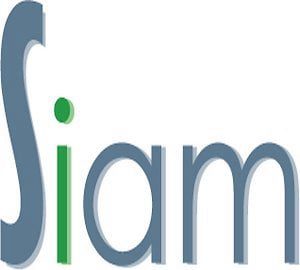EFSA recruits scientists for food safety research

Image: PxHere
EFSA recruits scientists for food safety research – On July 1, 2024, 180 leading experts joined the scientific panels of the European Food Safety Authority (EFSA) for a new five-year term. EFSA experts provide independent scientific advice to protect consumers, animals and the environment in the EU.
“We are very pleased with the outcome of the panel renewal process and the success of our latest call for applications.” Compared to 2017, we attracted 40% more candidates, including a higher proportion of women. Young scientists also confirmed their interest in working with us. The candidates are exceptionally qualified and represent a wide range of expertise in different fields,” said Nik Kriz, Head of EFSA’s Risk Assessment Services Division.
Increasing societal relevance
The mandate for the period 2024-2029 comprises eleven panels. The Panel on Food Enzymes (FEZ) and the Panel on Food Contact Materials (FCM) replace the previous Panel on Food Contact Materials, Enzymes and Processing Aids (CEP). The Scientific Committee consists not only of all panel chairs, but now also of an additional member and a social scientist. The aim is to improve EFSA’s ability to respond effectively to societal needs.
The “Transparency Ordinance”
The mandate of the bodies is extended to 5 years. As set out in the “Transparency Regulation” [(EU) 1381/2019], which came into force in 2021. The panels can now consist of 11 to 21 members, depending on the required expertise and expected workload.
Rigorous selection
More than 1,500 scientists applied for membership of the EFSA Panel following a call for experts in spring 2023. The appointed scientists come from 26 countries, including six non-EU countries. They were selected following a rigorous evaluation process and a review of their declarations of interest, naturally in compliance with EFSA’s strict rules on transparency and independence.
Important contribution from EU Member States
EU Member States make an important contribution to EFSA’s scientific expertise: 38% of the experts recruited come from national or public research institutes and 12% from national risk assessment bodies. These figures underline EFSA’s successful EU-wide cooperation efforts. A further 40% of experts come from universities, underlining EFSA’s strong links with the academic community. The remaining 10% are retired and independent scientists.
Launch activities
EFSA has organized a series of induction activities to familiarize experts with the Authority’s work as its new mandates come into force in July 2024. These sessions include a three-day launch event where the Panels will elect their Chairs and Vice-Chairs. EFSA’s Scientific Committee will elect its Chair and Vice-Chairs at its first plenary meeting in September.
Source: Website EFSA
Also read: ECHA adds a hazardous chemical to the candidate list
Reservation
This information has been compiled with the greatest possible care, in some cases from different information sources. (Interpretation) errors are not excluded. No legal obligation can therefore be derived from this text. Everyone dealing with this subject has the responsibility to delve into the matter!
